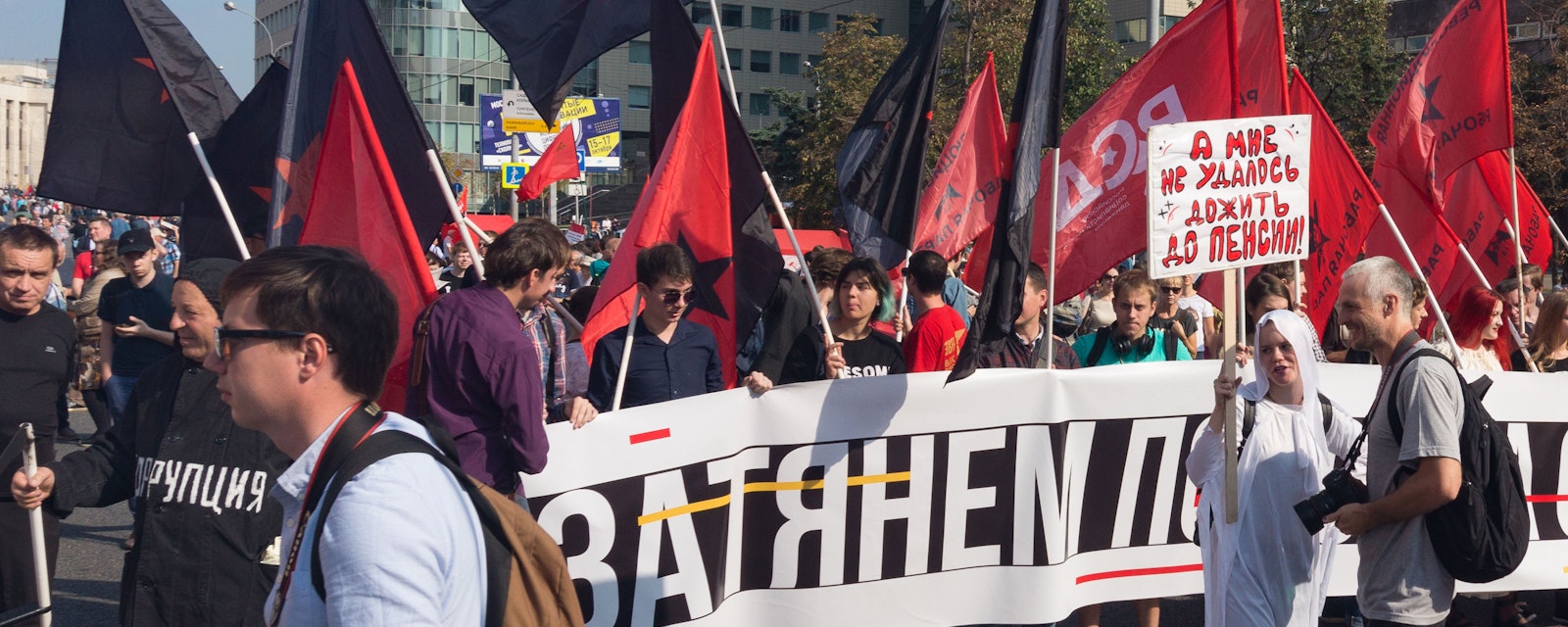Mayoral and regional elections on 9 September were accompanied by public protests over the unpopular pension reform. The ruling United Russia party lost some voter support but still won most key electoral races. Looking ahead, the Kremlin may propose additional measures to appease the protesters to avoid the potential emergence of a unified opposition movement.
Over the past weekend, widespread protests, driven by public opposition to the proposed pension age increase, broke out during the local and regional elections. Demonstrations took place in urban centers across the country and led to over 1,000 arrests in 33 cities. For the first time, these protests included a mix of both young, educated, liberal opposition and the pension-age voter base of President Vladimir Putin. Poll results from the Levada Center indicate that 90% of Russians are against the pension reform and ahead of this weekend 50% of respondents stated that they would participate in protests.
Public outrage over the pension age increase did translate into a loss of electoral support for United Russia; however, the party still managed to win most of the key electoral races. In four out of 26 regional elections, United Russia candidates failed to secure an outright majority and will now face run-offs with opposition candidates (two run-offs were held in 2015 regional elections). The second round will take place on 23 September, and the ruling party candidates will face challengers from political parties supportive of the Kremlin – the left-wing Communist Party and the nationalist Liberal Democratic Party of Russia.
The anti-establishment opposition did not record significant support in these elections, not least because its candidates were not allowed to stand or were outmaneuvered in the registration stage. In Moscow, the pro-Kremlin incumbent Sergei Sobyanin won 70% of all votes cast. The runner-up, the Communist Party candidate, Vadim Kumin, attracted 11%support. In 2013, Sobyanin only just cleared the 50% threshold to avoid a run-off with anti-corruption activist, Alexei Navalny, who drew 27% of votes and is now barred from running for public office.
Overall, United Russia felt the negative fallout from the unpopular pension age increase, but it did not lead to substantial losses in this round of elections. Putin's personal intervention to soften the reform may have helped to stabilize his approval rating, but it did little to restore the popularity of his government or the ruling party. United Russia's support is now at the similar level than in 2011 (nationwide at approximately 35%), when the latest large-scale protests took place.
The election result documents that this popularity decline does not represent an immediate risk to United Russia's grip on power. However, the Russian establishment typically does not leave a scope for the development of opposition movements. The Kremlin may announce additional measures to appease public opinion, particularly, if further protests would again bring to the streets Putin's core voters alongside the liberal opposition.
The government has several options to respond to pension reform protests: more adjustments in the reform proposals to accommodate public opinion, additional social spending announcements or a replacement of officials held responsible for the unpopular reform. The Kremlin may also try to divert public attention towards the international stage. However, the pension reform directly affects the personal social security of voters, which means that diversion tactics would likely provide at best a partial relief for the government.




